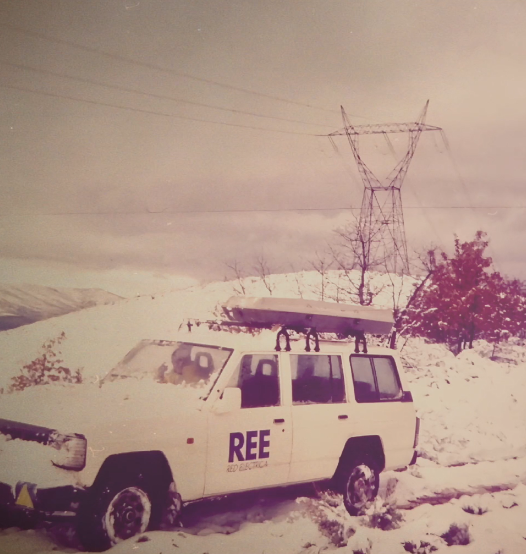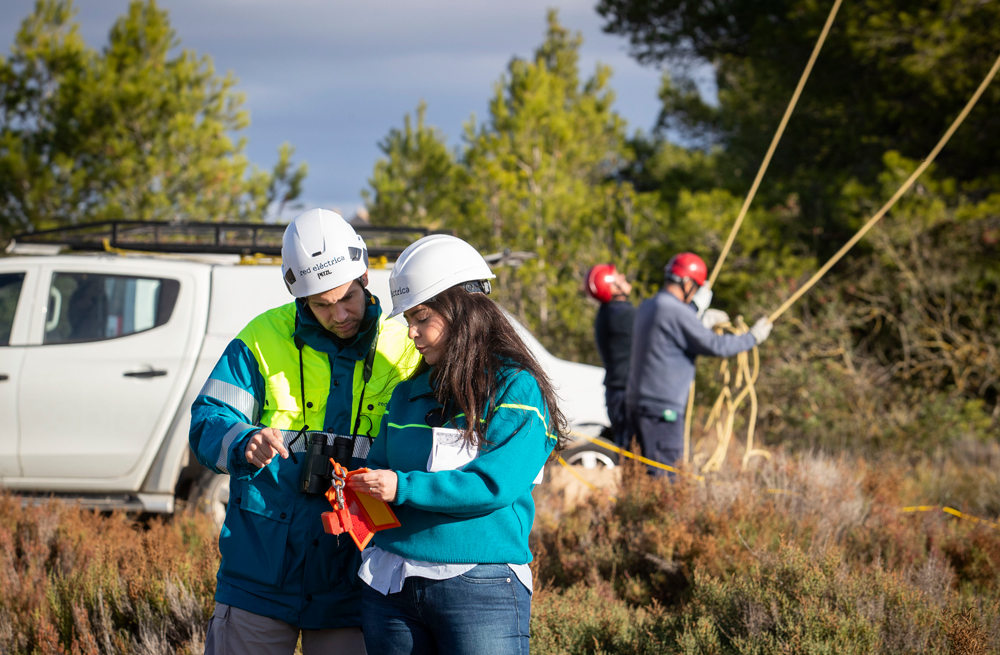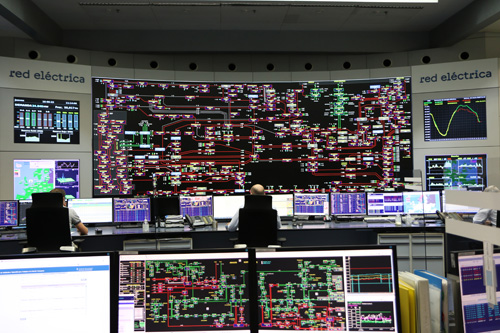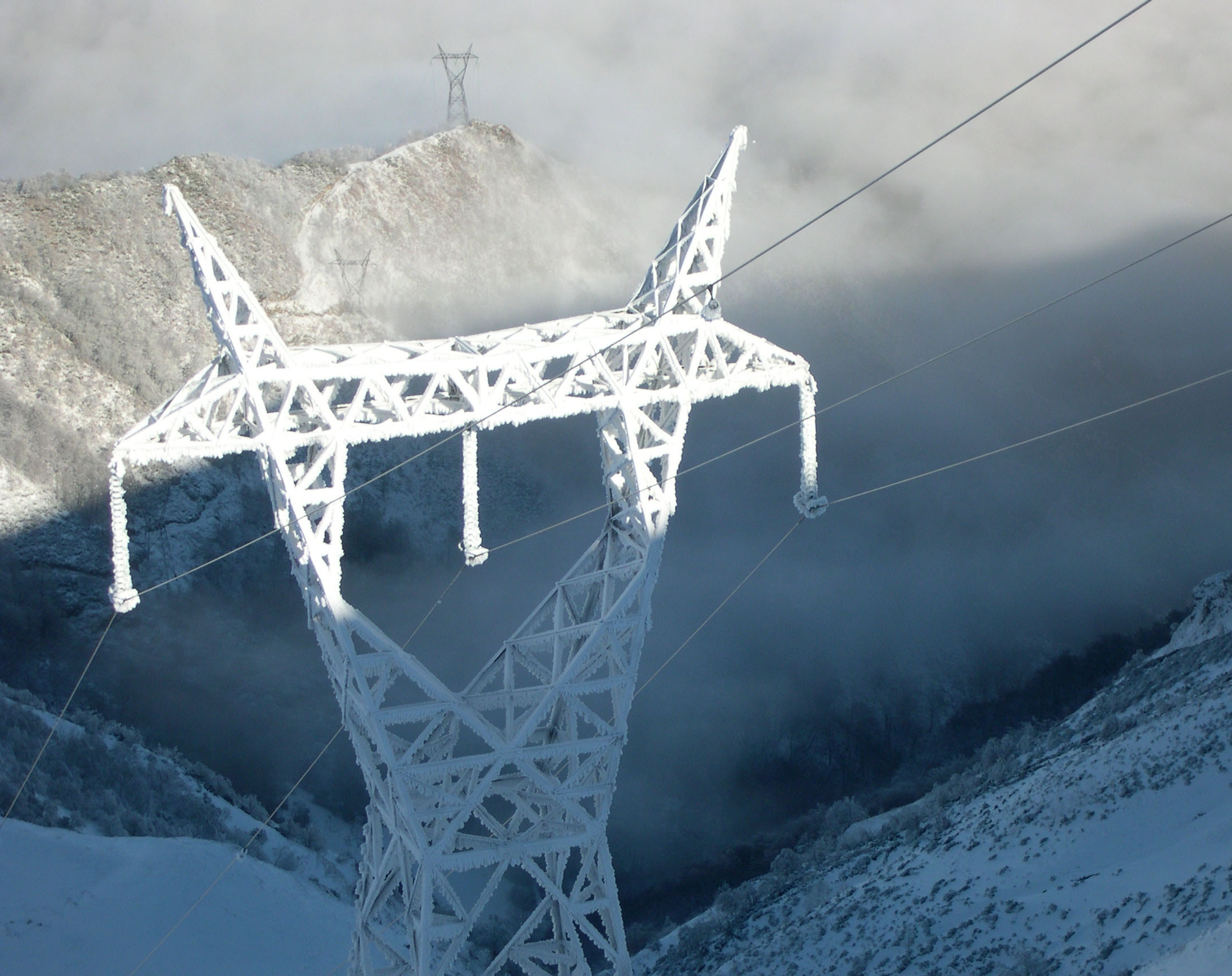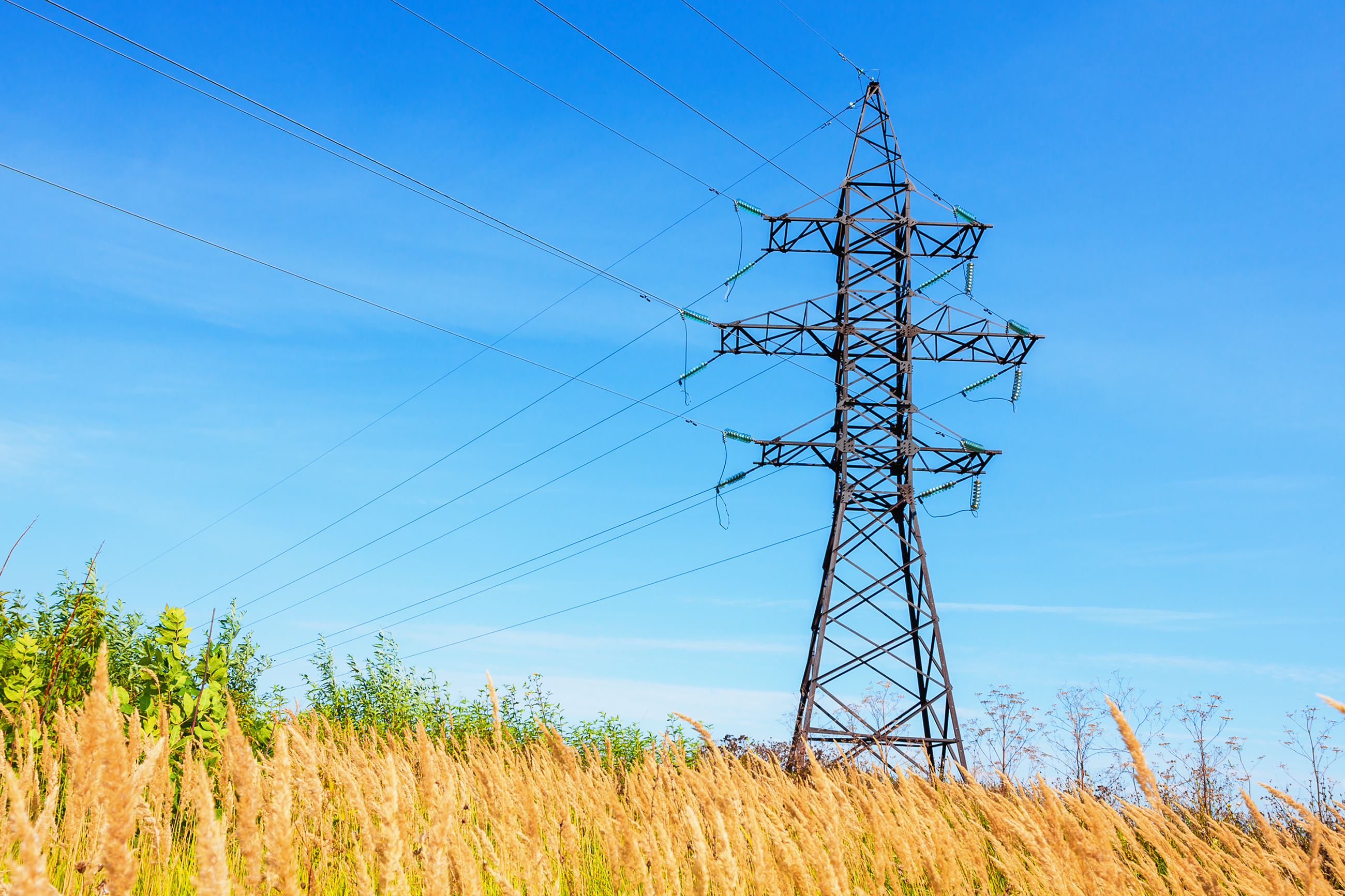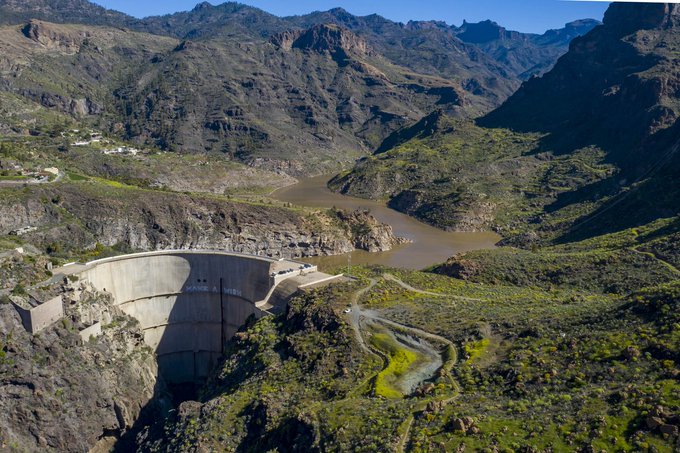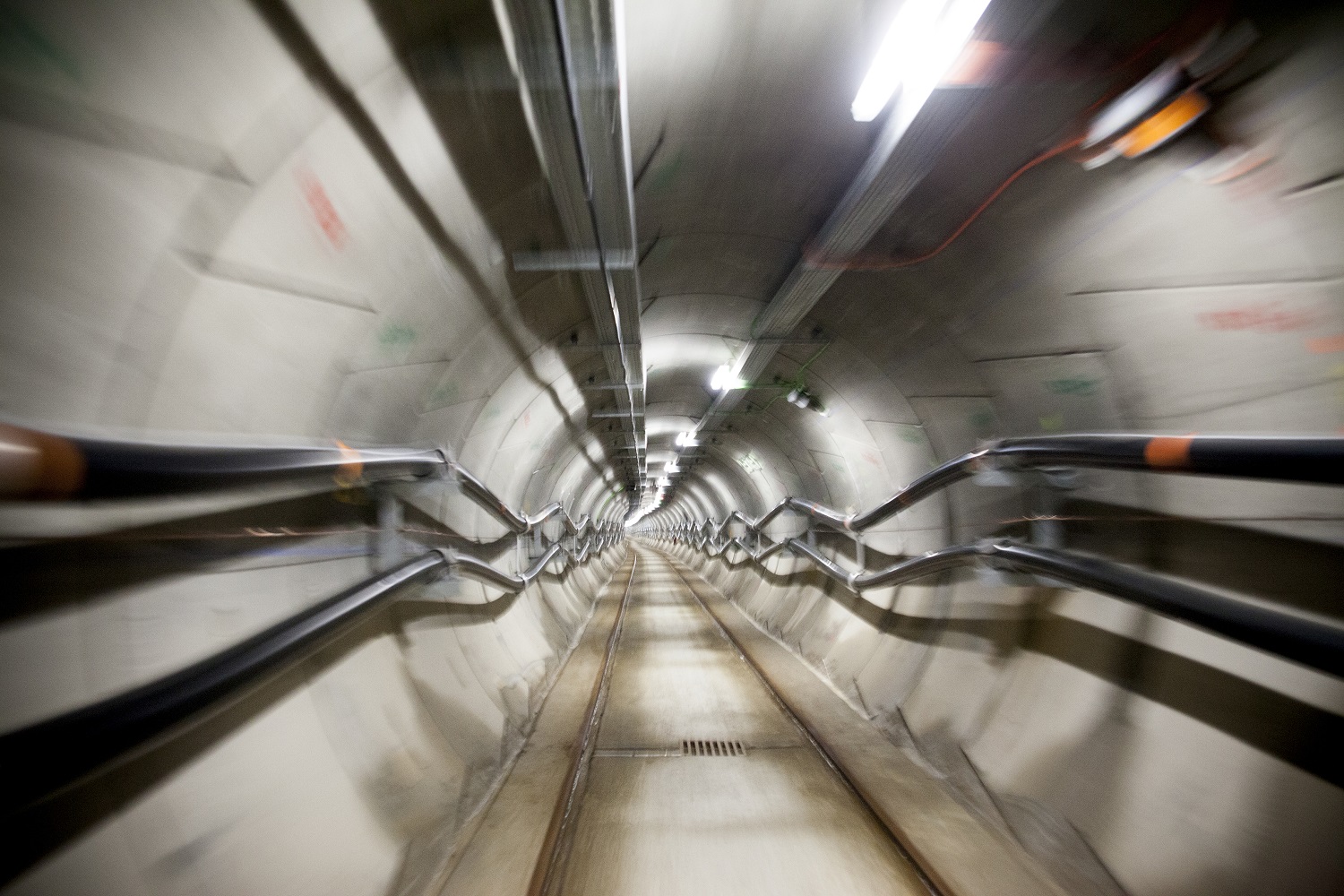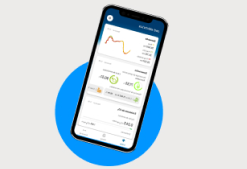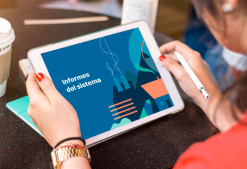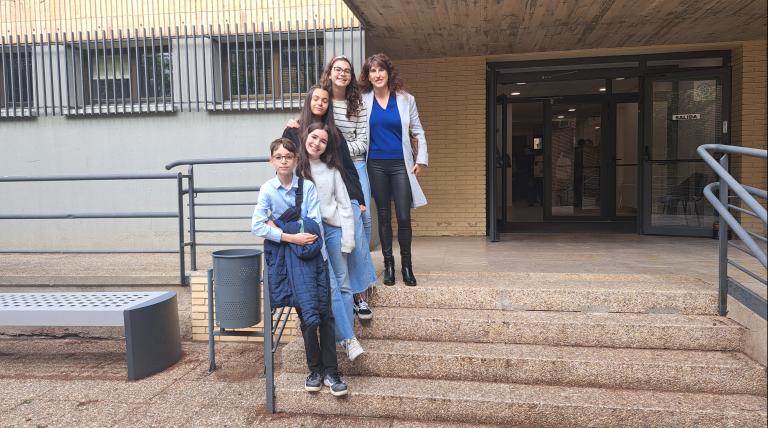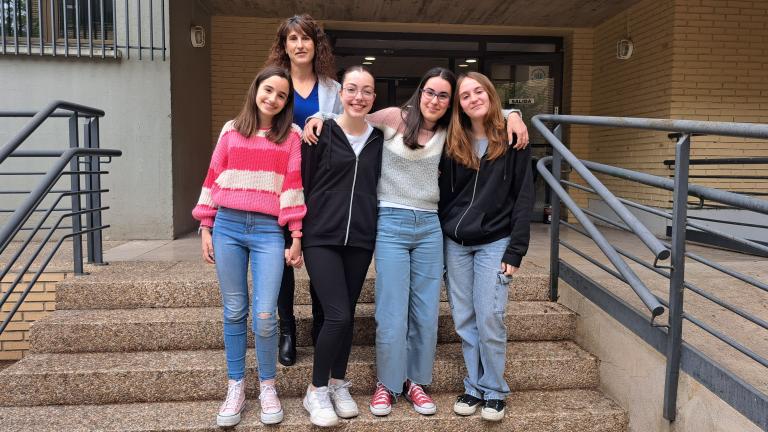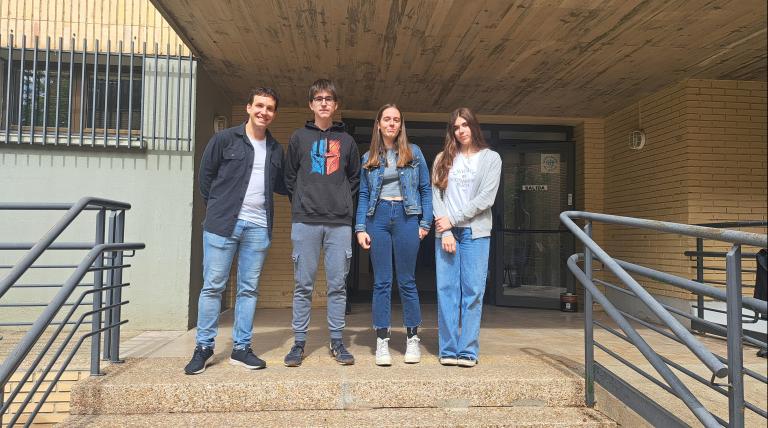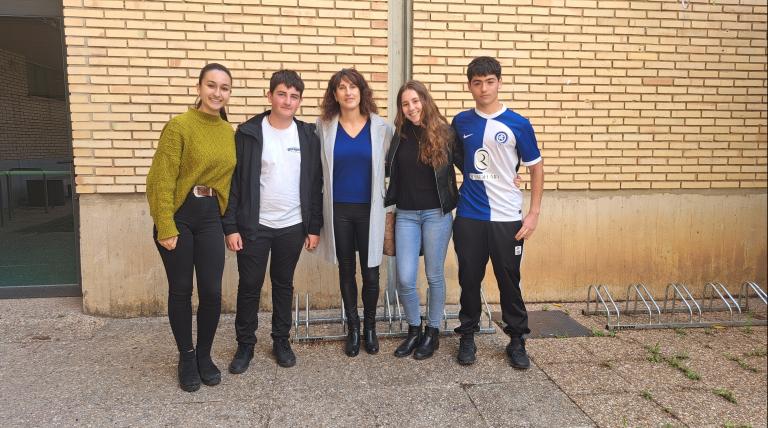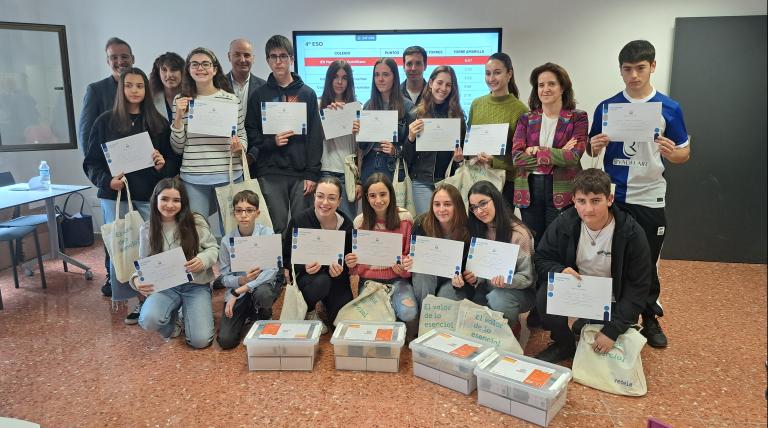For 40 years, we've been driving our country's economic and social progress. Four decades shaping Spain.
Two schools from Calahorra and Logroño will represent La Rioja at the national final of the Entreredes Olympics
- Their students will compete at the national final on 6h June, with students from other autonomous communities
- The La Rioja schools have been taking part in this event since 2017. This year, 2,185 students from 10 schools took part, 26% more than in the 2022-2023 school year
- The head of La Rioja’s Department for Education, Carolina Fernández Losada, and Redeia’s North East regional delegate, José Ignacio Lallana, presented the prizes to the winners in Logroño

Today, the IES (Secondary School) Marco Fabio Quintiliano from Calahorra and the Santa María Marianistas School from Logroño won the regional final of the Entreredes Olympics in La Rioja. They will represent the autonomous community at the national final, due to take place on 6 June.
The session on Friday at the Riojan Centre for Educational Innovation (Centro Riojano de Innovación Educativa, CRIE) ended this year's event, in which 2,185 students from 10 schools from La Rioja took part - 26% more than in the 2022-2023 school year- from the towns of Alfaro, Calahorra, Haro, Logroño, Nájera, Nalda, and Santo Domingo de La Calzada.
Three teams from the IES Marco Fabio Quintiliano from Calahorra prevailed in the 1st, 2nd, and 4th secondary school (ESO) categories, while the group from the Santa María Marianistas School from Logroño won in the 3rd secondary school category.
140 students competed in the regional final to win a place at the national final. The competition involved teams playing a video game called Entreredes, created by Red Eléctrica (Redeia subsidiary responsible for the transmission and operation of electricity systems in Spain). The aim of this game is to teach younger generations how the Spanish electricity system works and to review their school knowledge in a fun and interactive way.
During the competition, the students virtually travel around the country via different lines and substations of the electricity transmission grid, and win points based on questions posed to them.
The winners of the regional finals secure a place at the national final, where they will have to demonstrate who has the best grasp of the knowledge conveyed in class, on subjects such as Geography and History, Physics and Chemistry/Biology, Mathematics, Language and Literature, Culture and Leisure, and, in particular, lessons learnt about energy, the ecological transition, and the Spanish electricity system.
The head of La Rioja’s Department for Education, Carolina Fernández Losada, and Redeia’s North East Regional Delegate, José Ignacio Lallana participated at the prize-giving of the regional finals.
The schools in the autonomous community of La Rioja have been taking part in the Entreredes Olympics since 2017, and numbers of students participating have only increased, from the 115 who took part in the very first event. Across the country, nearly 54,000 secondary school students from eleven autonomous communities and the autonomous city of Ceuta played the game and took part in the Olympics.
A game to help young people understand the energy transmission grid, and much more
In Entreredes, students virtually travel around the country via different lines and substations of the electricity transmission grid. In order to progress, they have to answer questions posed about the electricity system and subjects covered in class: Geography and history, physics and chemistry/biology, mathematics, language and literature, and culture and leisure.
Among other topics, they learn about renewable energies and their contribution to the mix, interconnections with other countries, the existence of a cable for electricity exchange with the Balearic Islands, and the implications related to the fact that the Canary Islands' electricity systems are isolated.
The game, which is completely free, is designed as a tool to support teachers in their classes, as a resource for students to review information at home, and as a fun activity to share with family and friends. It has three different play modes which adapt to suit educational needs at all times: Classroom, Challenge, and Classic, and it is available for both desktops (Windows, MacOS, and Linux) and mobile devices (Android and iOS) via via this link.
Downloads
